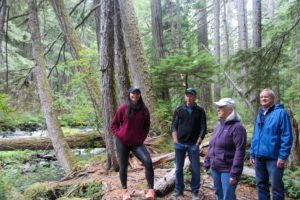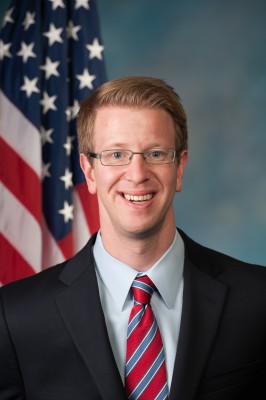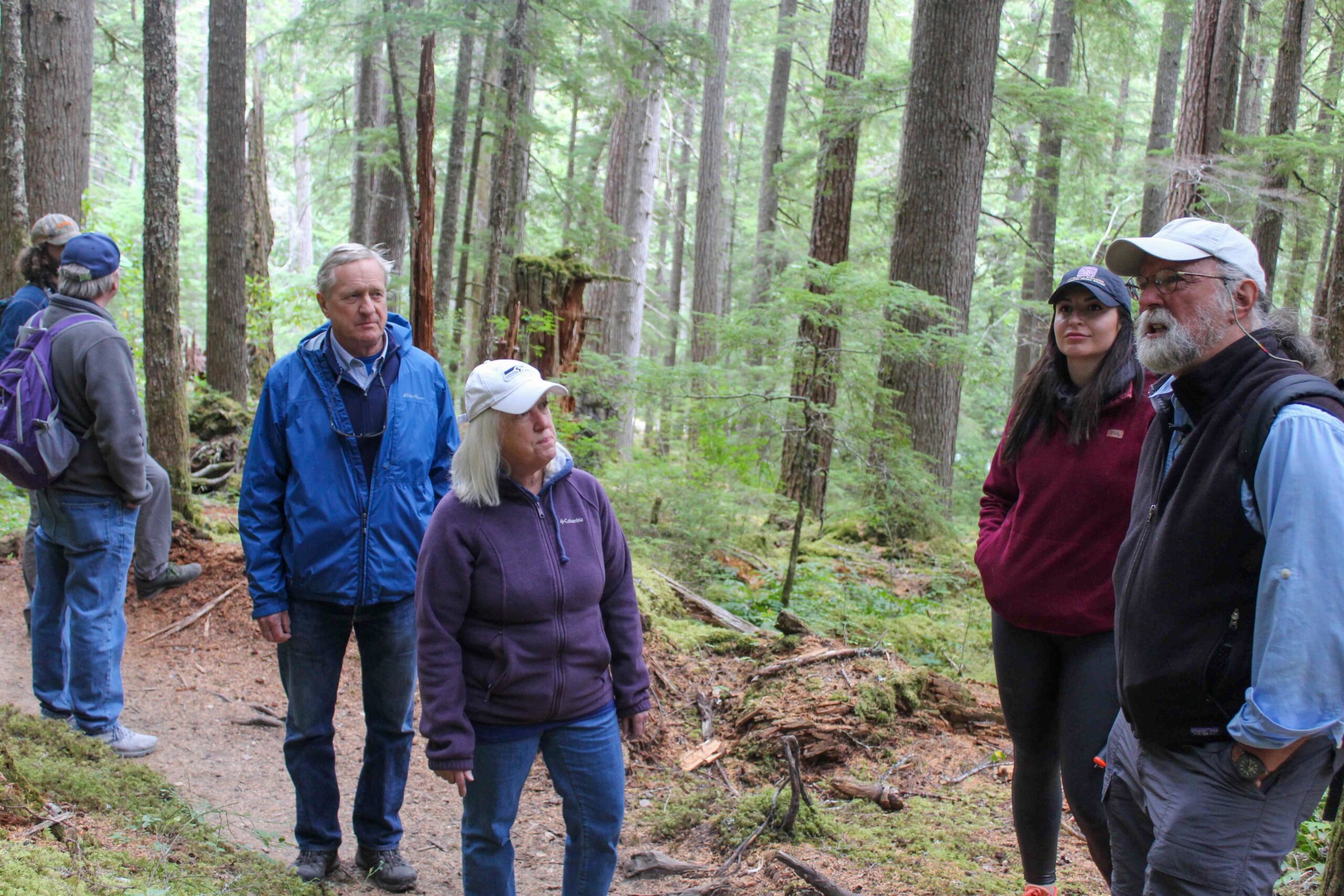The $839 billion National Defense Authorization Act (NDAA), approved Thursday by the United States House of Representatives was quietly amended before passage to include Washington’s next major public lands preservation effort.
A decade in gestation, the Wild Olympics Wilderness and Wild and Scenic Rivers Act would protect 126,500 acres as wilderness – portions of Olympic National Forest surrounding the namesake national park – while extending Wild and Scenic River status to nineteen rivers and tributaries.
The House had already passed Wild Olympics legislation earlier this session, but the defense bill creates another vehicle for the Senate to complete action.

The legislation has already enjoyed a hearing before the Senate Energy and Natural Resources Committee.
A pattern of wait-and-hurry-up describes action by Congress on land conservation measures, particularly given Republican hostility toward wilderness designation and species protection.
A must-pass vehicle is identified.
Proposals by a sizable number of lawmakers are then bundled together, so everybody has skin in the game.
Allies are secured.
The late Senate Majority Leader Harry Reid used waning days of Democratic control in 2014 to create a legacy package of wilderness protection, much of it in Nevada but also long-pending wilderness proposals in other states.
Senator Patty Murray, D‑Washington, stepped in to tack on expansion of our Alpine Lakes Wilderness Area, and protection under the Wild and Scenic Rivers Act for the Middle Fork-Snoqualmie River, the closest mountain valley to Central Puget Sound’s population centers of Seattle and Bellevue.
A bipartisan duo, Democratic Representative Suzan DelBene and Republican Representative Dave Reichert, worked as Sherpas to assure House passage.
Ultraconservative Representative Doc Hastings, R‑Washington, who chaired the House National Resources Committee, had blocked Alpine Lakes action for years. But the bill gave Doc something he wanted, continued road access to the top of Rattlesnake Mountain north of Richland. The mountain is considered sacred by the Yakama Indian Nation. The legislation sailed through in waning days of Congress.
If you want to know what’s at stake with Wild Olympics, pause at Lake Quinault on your next visit to the Peninsula. Ridges around the lake will get protection. The nearby 4,492’ Colonel Bob Mountain, a bear of a hike, was given protection in the 1984 Washington Wilderness Bill.
Preservation adds up.
More than ninety-five percent of Olympic National Park – 876,447 acres to be exact – is protected under the Wilderness Act as the Daniel J. Evans Wilderness, named for the former Republican senator and governor. With Wild Olympics, more than 200,000 acres of national forest land will enjoy similar protection.
It all began more than 113 years ago, when President Theodore Roosevelt set aside a 450,000-acre Olympic National Monument to stop the slaughter (for logging camp food) of the elk herds that now bear his name.
He also designated rock formations off the coast as national wildlife refuges.
A famous 1937 road trip around the Olympic Peninsula by President Franklin D. Roosevelt kindled FDR’s support for our state’s largest national park.
Conservationists had to beat back efforts to excise the Bogachiel River and other rainforest valleys from the park, a struggle recounted in Carsten Lien’s book “Olympic Battleground.” U.S. Supreme Court Justice William O. “Wild Bill” Douglas twice led backpacks along the park’s wilderness coastline in a successful effort to block construction of a beachfront road.
Wild Olympics was first proposed by then-Representative Norm Dicks, D‑Washington, before his retirement from Congress in 2012. The legislation’s guidance fell to his successor, Rep. Derek Kilmer, D‑Washington.

Although a product of Princeton and Oxford, Kilmer grew up a Port Angeles boy, with an acute sense of how to win support in a region long sustained by logging. Kilmer held his own hearings and drew up his own legislation, teaming with Murray.
Along with local greens, Kilmer has done a phenomenal job. Wild Olympics has collected eight hundred endorsers. Major business players (e.g. Taylor Shellfish), sportsmen’s groups, local mayors (Port Angeles, Port Townsend, Ocean Shores) and the Quinault, Quileute, Elwha and Jamestown Sk’allam tribes have supported the plan.
Attaching Wild Olympics to the NDAA required help from an urban lawmaker. Representative Adam Smith, D‑Wash., chairs the House Armed Services Committee, a rare island of collegiality in a sharply divided Congress. Smith delivered, and the authorization bill passed on a 329–101 vote.
The state’s wilderness battles once witnessed lineups of fume-belching logging trucks and county commissioners decrying the “lockup” of “our resources.” The timber industry fielded front groups (e.g. the “Alpine Lakes Coalition”) and paid forestry professors to give wildly inflated estimates of timber to be “lost.”
As the economy has changed, and appreciation of wildlands has grown, the politics of preservation have grown more favorable.
Dan Evans persuaded Republican President Gerald Ford to sign the 1976 Alpine Lakes bill when Ford’s own agriculture secretary was urging a veto.
Ronald Reagan signed into law the Washington and Oregon Wilderness bills, and legislation creating the Columbia Gorge National Scenic Area.
George W. Bush put his signature on a bill to protect the Wild Sky Wilderness.
Such is the love of Olympic wild places that the Peninsula has even seen rival hikes. In 2017, the Trump administration proposed opening virtually all of the Outer-Continental Shelf to oil and gas exploration. The 2016 Republican gubernatorial candidate Bill Bryant led a protest backpack honoring the legacy of Theodore Roosevelt. Days later, Attorney General Bob Ferguson led Democrats along the beach, recognizing Franklin Roosevelt and William O. Douglas.
Our state’s senators should get Wild Olympics through, in one form or another. Both have a track record: Wild Sky was a Murray project, and she leaned on President Clinton to designate the Hanford Reach National Monument. Senator Maria Cantwell, D‑Washington, used the 2020 Great American Outdoors Act to permanently authorize and fund the Land and Water Conservation Fund, assuring federal dollars to acquire critical wildlife and recreation lands.
As with backpack trips through Olympic Peninsula wilderness, it helps when you have as company people who know what they’re doing.

